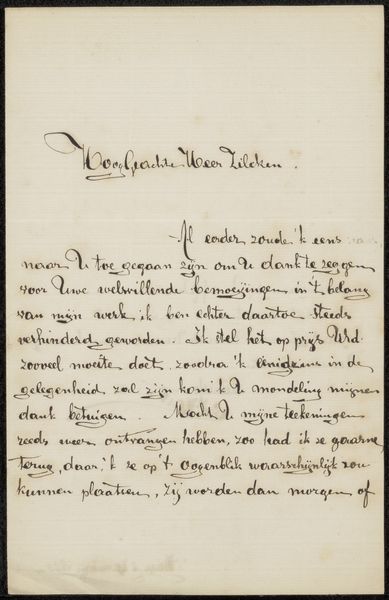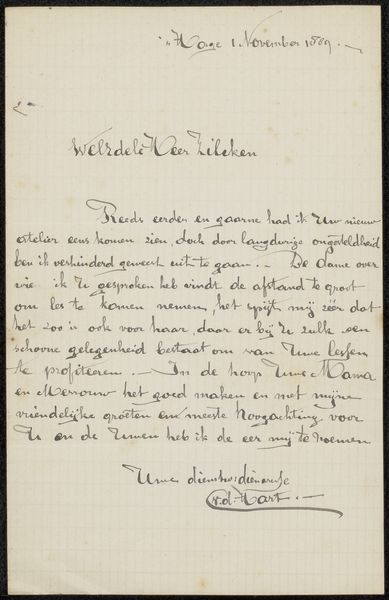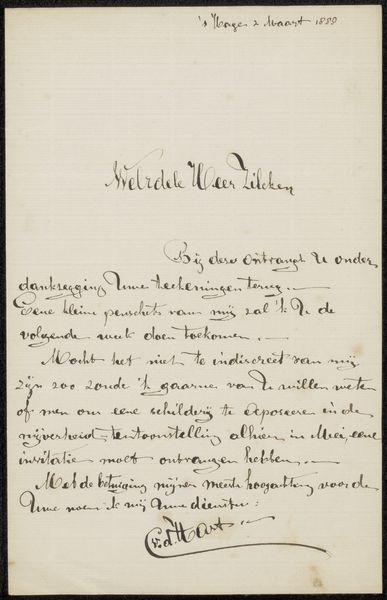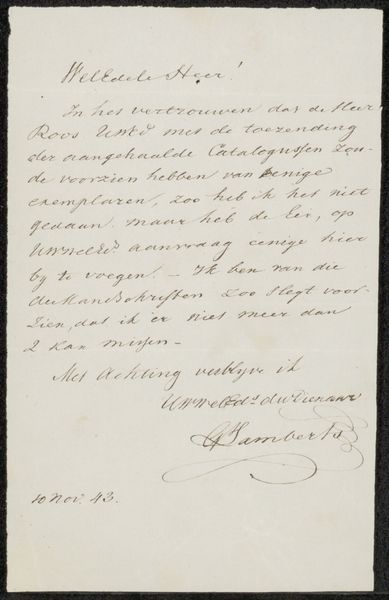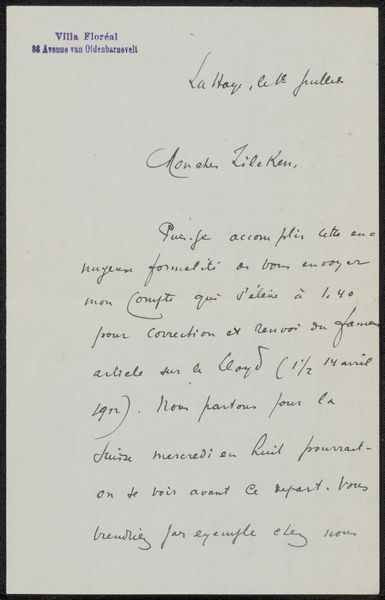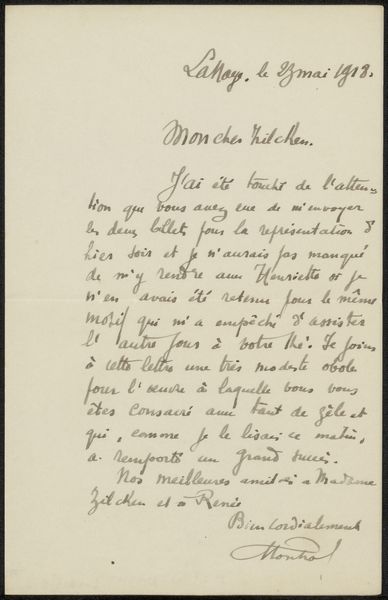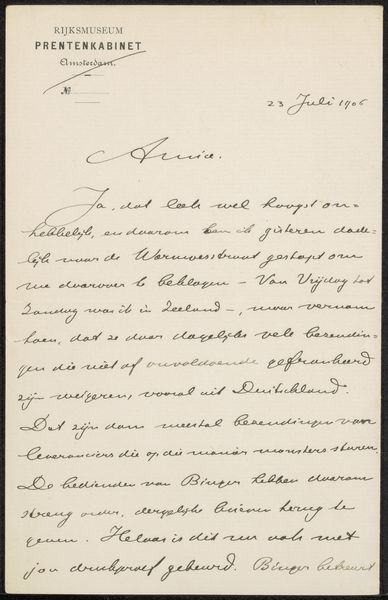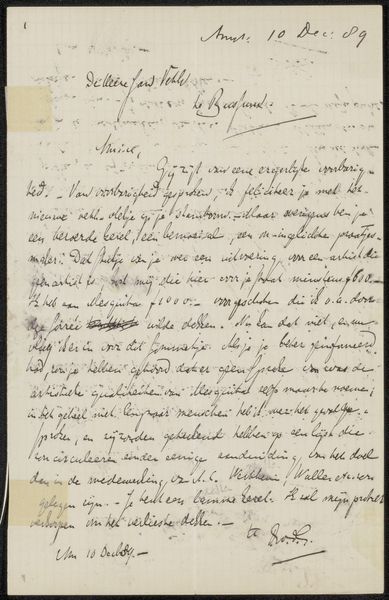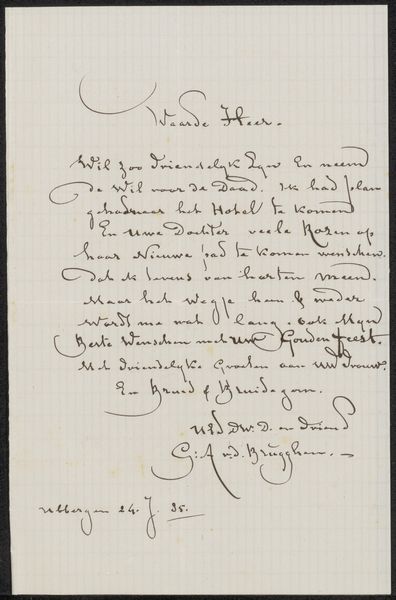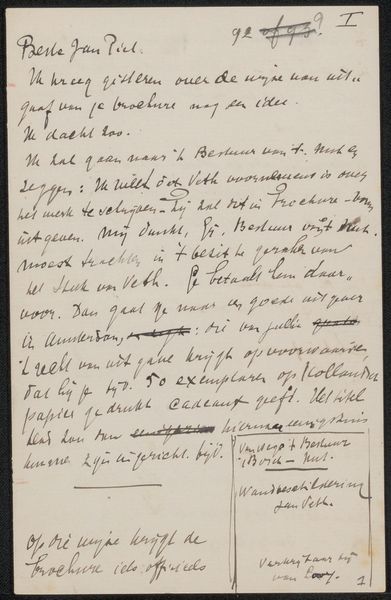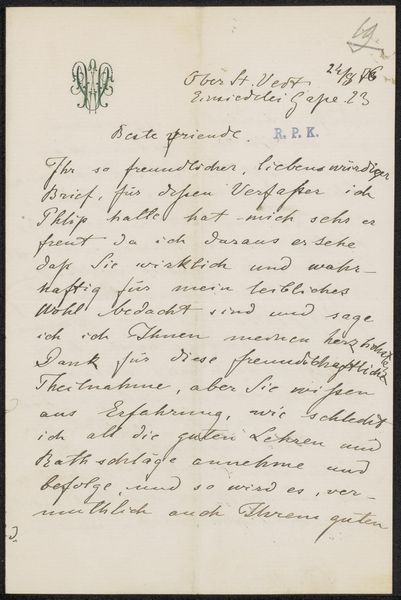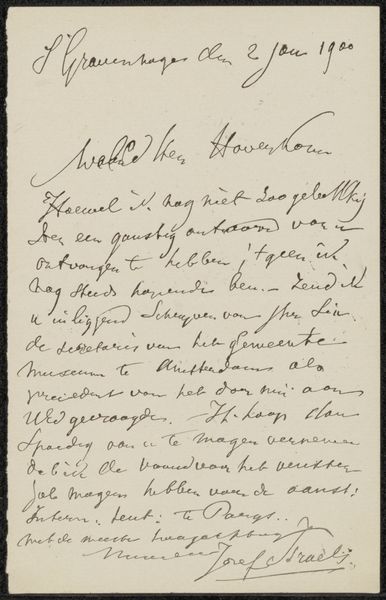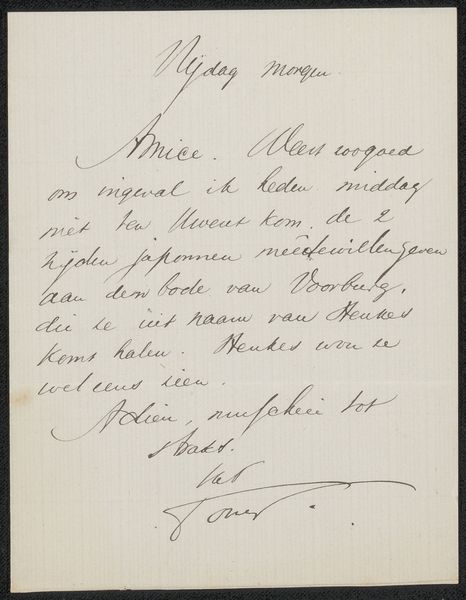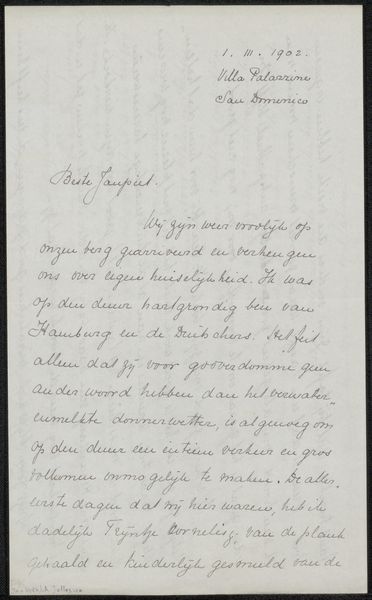
drawing, ink, pen
drawing
personal sketchbook
ink
pen
Copyright: Rijks Museum: Open Domain
Editor: So, this is "Brief aan Philip Zilcken," potentially from 1890 or 1891, by Cornelia van der Hart. It's a drawing, ink on paper... sort of an intimate piece of correspondence, or part of a personal sketchbook. I'm really drawn to the elegant script – but what do you see in it? Curator: The handwritten script is, in itself, a potent symbol. Each flourish of the pen, the weight of the ink, speaks to the author's emotional state, their intentions. Beyond the literal message, consider how the act of writing, especially in that era, was a deliberate performance. What aspects of cultural identity are represented here? The cursive shows social position, and her choice to present the work as is also represents intent. What happens to a letter like this in cultural memory over time? Editor: I hadn't thought about it as a 'performance', that's a great point. So, how would someone have *read* this letter differently back then? Curator: Well, it speaks volumes about societal conventions of the time – the language of deference, the carefully chosen words… Imagine the recipient decoding not just the message, but the subtext: the relationship between writer and reader, the nuances of social standing, and implicit appeals within those constraints. Consider also what visual memory of letters was like. Editor: I guess we’ve lost that art with email and texts… so this isn’t just a letter but a kind of cultural artifact itself? Curator: Exactly. The imagery embedded is one of social transaction and cultural exchange. The handwriting conveys this almost more than words alone. How will it signify a century from now? That is for viewers such as ourselves to decide.
Comments
No comments
Be the first to comment and join the conversation on the ultimate creative platform.
